#where else can i say my weird little sentences in my stream of consciousness excess words kind of way
Explore tagged Tumblr posts
Photo



i tested out making some buttons and stickers with the help of a good friend c: i’m still sitting on the idea of opening an online store so yall can buy prints and other merch like this
the anime merch and one (1) pizza drarry have been gifted, but the other stickers i’m thinking of giving away to patrons~ if i end up having any leftovers, i’ll ask here if anyone wants them
★Ko-fi ★ Patreon ★ Commission Info ★ {please do not repost / reblogs are welcome!}
#sk8#sk8 the infinity#renga#yuri on ice#yuri plisetsky#drarry#ginsy#my art#this was super helpful to see how the colors looked and any line weight adjustments i need to make for future products#i realize this site isn't the best place to market myself but idc#where else can i say my weird little sentences in my stream of consciousness excess words kind of way#tumblr doesn't have a character limit and my dumbassery will never be cut off
72 notes
·
View notes
Text
THE LOST GIRL’S HOME IS IN BOOKS: spring leisure reading

Girl Reading (1850), oil on canvas, Andre Fontaine
Writing on my phone. On the train. Woke with a sore throat. Snow outside the Manhattan window turning to sludge and then puddles. In the morning Alex and I made our way to Tisch to pick up books from Wendy and sit in on Fred Moten’s class. He spoke for three hours about a paragraph in Zalamea’s Synthetic Philosophy of Contemporary Mathematics, constellating the Isley Brothers with quantum physics with the history of slavery with Solange with financialization with the spatio-temporal dimensions of Judaism with critiques of the individuated liberal subject. In Fred’s presence I’m always in awe. When he says the stream of thought will go where it goes, I know what he means, what it feels like, to want to read everything. To have no filters. To be a being who is…interested. “You know, it’s like a river that winds through all these different terrains, and part of it winds through the history of science, and part of it winds through category theory and general topology, and part of it winds through Russian cinema—I’m just interested.” (Moten) Would like to linger more on the things I read and not just mark passages to return to…later. Has grad school de-skilled me? Has the process of becoming a “historian”—of having to read thousands of pages per class in grad seminars destroyed my ability to read slowly? Poetry is becoming harder to read. It demands a kind of attention other than the kind of attention I have become accustomed to—the temporality forced into me by the academic grind. Last semester I did my comprehensive exams. For two hours I was quizzed by 4 professors on the contents of ~400 books. My fields were: Prisons and Police; History and Political Economy of Race in America; Social and Political Theory (Marxism, psychoanalysis, critical theory, Frankfurt School, feminist/queer theory, post-structuralism); and Black Literature, Theory and Cultural Studies. “Studying” for my exams hardly felt like studying at all—I was just doing what I’ve always done: read. But the thing about being in academia is…you can’t just read what you want to read (unless you’re Fred!), you’re supposed to specialize. Your supposed to read within your discipline, to be monogamous with your dissertation topic. But sometimes…my mind needs ventilation. I need to let my mind wander. So this spring break I went on a kind of “retreat”—I rented a little eco-bungalow on a mountain overlooking the ocean in Deshaies, Guadalupe, with the intention to do nothing except read, journal & spend time in nature. It’s weird to now have a life where I have to schedule in these compressed snatches of leisure. Between my academic life and artist/public intellectual life all life is becoming work work work. Constant travel, mountains of assignments to grade, grant applications, bureaucracy, student emails, assigned readings, lesson planning, talks—in psychoanalysis I am sometimes too fatigued to finish my sentences. What was it? “The disquieting feeling that we don’t own ourselves.” My poor journal, neglected since last semester. Turned inside-out and called into presence by the Pavlovian PING of the push notification. Life becomes the work of feeding the avatar. It’s nothing new. It’s the same ole subject formation, in overdrive. The you of I (alienated Lacanian subject) — identification with an image of self that circulates as…I-am-that. When the avatar takes over your life, when you become what the public makes you…how can you find a way to re-inhabit your life as you? Quiet. Unplug. Has busyness evacuated my inner life? I’m still me. But look at how much my situation has changed��
Here are my notes on the books I read over spring break (some finished the week after I returned…)

Tolstoy - Anna Karenina
My skin takes it in. Ghosts enter and leave this vessel, Sunship Earth. Body, too, will become a ruined beach house covered in pale violet morning glory vines, its shutters still hinged shut. Now Nabokov is analyzing the varied march of time in Tolstoy—there is something like a moral in Kitty and Levin’s slow dance, against the locomotive thrust of Anna and Vronsky. A road—to where? The bull in the clearing, the smell of the tiny yellow flowers and the fade, the gloaming, the wall of water, peach-haloed in the sunset. The dimming, the peep of the first cicada, the crushed cicada that lost its way, the dream that wrote her destiny, the dirty peasant rooting around in the sack—the man split by the wheels of the locomotive. A force that nothing, no one escapes. [Holy shit. As I type these notes from my journal my train has been stopped in Providence because the train ahead of us hit someone]. Yes, I have had the dream of the man with his hand in my sack [“It was crowded in the market. I was trying to photograph the flowers but the image was distorted because a man had his hand in my backpack”]. Can a sudden silence wake a sleeping body? I think, as I wake, that I have caught the day in the precise moment of transition. What crossed over then, the wind swept the island clean. Like Anna Karenina I have been under the spell of the dream: what I now no longer know if I can trust. Nothing could have saved Anna the terrible omen flashing above her life…
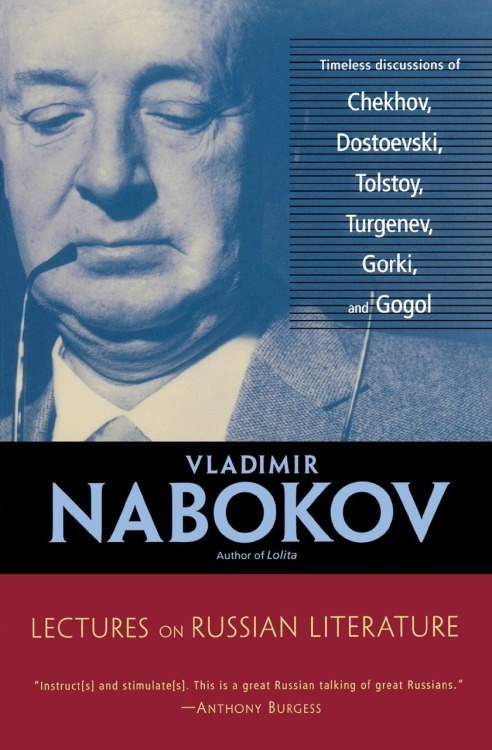
Nabokov - Lectures on Russian Literature
Freud and Baldwin love Dostoyevsky. Nabokov loathes him. What does that tell you about the kinds of people who love and hate Dostoyevsky? Lovers of Dostoyevsky: hysterics, neurotics, fringe-dwellers, madmen. Dostoyevsky is to literature what Zulawski is to cinema (emotional excess–which is why teens also love Dostoyevsky). This whole book is an argument for Tolstoy and against Dostoyevsky. Lovers of Tolstoy: the good, the moral, the erudite, Oprah. Nabokov is a snob à la Adorno, but his lectures on Tolstoy are damn good (skip the ones on Dostoyevsky), especially the ones on dreams and time in Anna K.
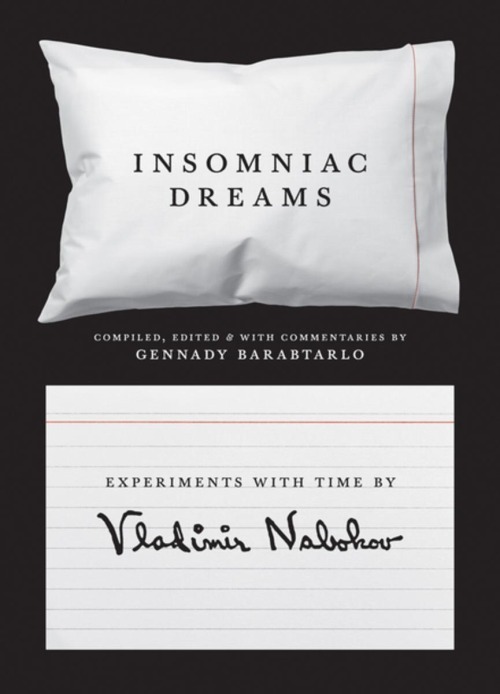
Nabokov and Barabtarlo - Insomnia Dreams
This book is pretty fucking cool. It is an inventory of Nabokov’s proleptic dreams, which he wrote down on notecards after reading J. W. Dunne’s An Experiment with Time. Dunne was an aeronautical engineer and crackpot philosopher who developed what I sometimes call stoner dream theory. He believed that past-present-future exist simultaneously and that the experience of time as an arrow moving forward is an effect of waking consciousness. In dreams we are unhitched from normative time and can access the future–are touched by future events.
Notebook notes: Dunne and Nabokov dream to know time in every direction. So future events loop back to pierce our sleeping heads. Did I believe—the future is making contact with me. What did the dream corrupt? I could not outrun it. Nabokov dreaming of South Station [strange, that’s where I’m headed as I type up these notes…]. Dreams of the lepidopterist: chasing the butterflies with a giant spoon instead of a net. Sometimes he’s an insufferable pedant. But even pedants can have a compelling dream life…

Lemov - Database of Dreams: The Lost Quest to Catalog Humanity
Professor Lemov teaches in the History of Science department at Harvard. She is currently a faculty fellow in a year-long Crime and Punishment seminar at Harvard that I am also a part of. I first got interested in her work after she presented an excellent paper on the history of Cold War behaviorist experiments (many of which were conducted on prisoners, including the practice of “psychosurgery”) and early efforts to use data to construct psychological theories of deviance. When I found out she wrote a history of a dream database, I knew I had to read it.
This book is a history of Bert Kaplan’s ambitious mid-20th century quest to create a database of dreams and psychological data (called the Primary Records in Culture and Personality), which consists of a collection of the raw notes of the thoughts, feelings, and dreams of people from around the world, stored on the now-obsolete technology of the Microcard. It is at once a history of: microfilm technologies, data science, the information storage ambitions of postwar social scientists and anthropologists, and psychologists’ obsession with the dreams and unconscious thoughts of ethnic “others.” The story of the database is fascinating in itself…but I wanted to know more about what was in the repository. Sometimes the unconscious speaks:
“A man named Birch Tree told of a dying young man of his acquaintance who had dreamed too ambitiously: one night, he was able to see ‘every leaf in the whole world’ and perished soon after, like the leaves that fall from the trees each year.”
“dream #19, in which he was shooting birds, surrounded by sunflowers as big as evergreen trees”
“Dreams were “palimpsests for understanding what could be called ‘not-self,’ the place at which the self begins to shade away into nothingness or something else.”
“If you sat in a library looking at someone’s dreams, what were you seeing?”
The database of dreams was dead on arrival.
But there’s another living database of dreams assembled by oneirologist Kelly Bulkeley: http://sleepanddreamdatabase.org/ – have read and enjoyed several of Bulkeley’s books too. The convocation of the oneirologists…

Sliwinski - Mandela’s Dark Years
How strange, I read this two days before the death of Winnie Mandela. Did Nelson dream of Winnie while in prison? There is a lot to chew on in this little book. I keep returning to the dream that is circled in the text, Nelson Mandela’s dream from prison:
I had one recurring nightmare. In the dream, I had just been released from prison—only it was not Robben Island, but a jail in Johannesburg. I walked outside the gates into the city and found no one there to meet me. In fact, there was no one there at all, no people, no cars, no taxis. I would then set out on foot toward Soweto. I walked for many hours before arriving in Orlando West, and then turned the corner toward 8115. Finally, I would see my home, but it turned out to be empty, a ghost house, with all the doors and windows open, but no one at all there.
The subject in absentia dreams their erasure while in prison, the experience of becoming-ghost. (Mandela’s recurring nightmare. How apartheid structures the geography of the unconscious…)
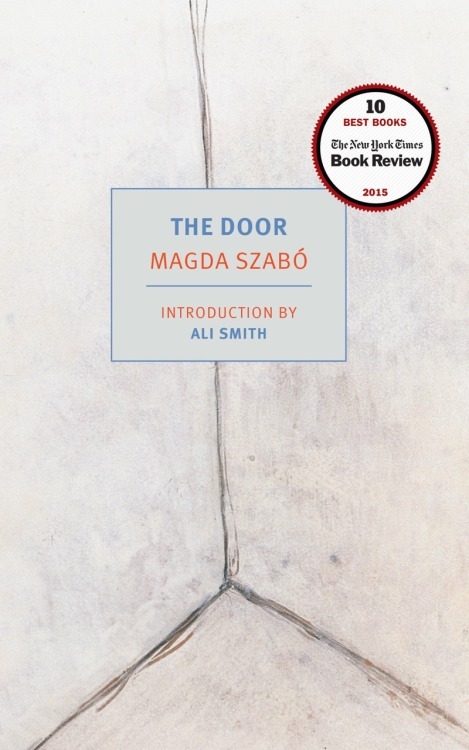
Szabó - The Door
“If there was [an] article about what to read once you’ve finished Elena Ferrante’s Neapolitan novels, The Door—though it lacks the scope of those books—might top the list.” I read no such list but did finish the Neapolitan novels last year. I read The Door after it was recommended by 3 of my feminist friends.
To say what this book is about would fail to get at the experience of reading this book. It’s deeply disturbing and all the more so because Emerence, the narrator’s housekeeper, is the exact likeness of my aunt Helen. They are women for whom every emotional door has been sealed shut. They both had dogs that were passionately attached to them. Under what conditions does the wound grow into an impenetrable shell? Grow into the pride of self-sufficiency…
Notes: The book is bookended by a recurring nightmare of a door that won’t open. An ambulance outside, and the silhouettes of paramedics seen through glass. Most of my dreams are about the absence of shelter, porous structures, rooms that are always open to invaders. But here is a nightmare about being trapped inside with someone in need of help. Ferrante’s Days of Abandonment resonates too.
Resonances. Lightning strikes the two babes Emerence was fleeing with. In Anna Karenina, lightning missed Kitty and child. The plots of two novels are crossed. What characters evade in one novel befalls characters in another. It’s like the books are talking to each other through the body of me.
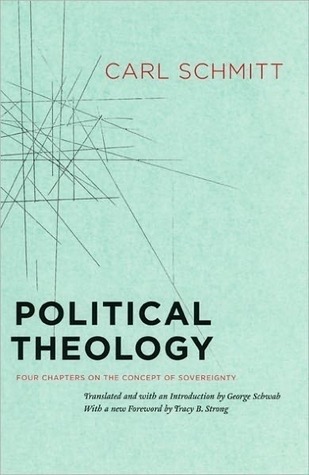
Schmitt - Political Theology
We should discuss this book in person. My thoughts are too sprawling to give shape to them here. People on the left read Schmitt for his critique of liberalism and though there are parts of it I find compelling (I’ve elaborated the concept of a “financial state of exception” in my book Carceral Capitalism), the part about liberal democracy lacking decisionism because it’s weighed down by a Weberian bureaucracy is, I think, wrong. Well, that’s what I felt while reading McCoy’s In the Shadows of the American Century immediately following Political Theology.
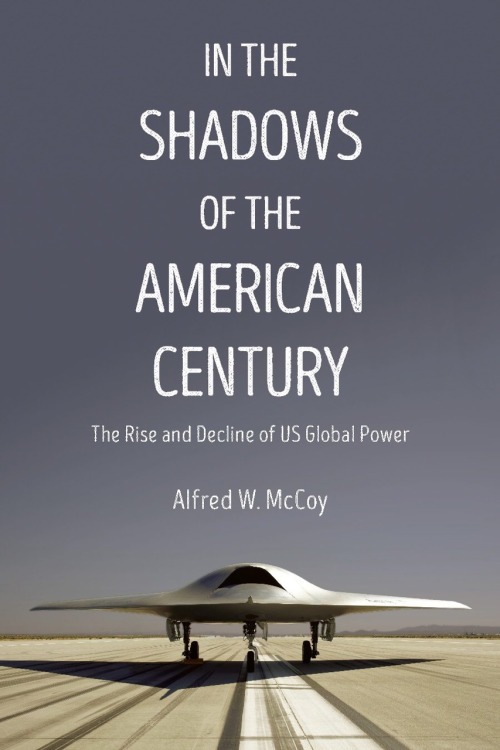
McCoy - In the Shadows of the American Century
This book is part of an ever-growing body of literature on the decline of US hegemony and the rise of China as a global superpower. But what this book adds to the analysis is a thought-provoking discussion of the changing nature of geopolitical struggles–from a navel-based strategy to a land-based strategy. McCoy unpacks the influence of Halford Mackinder’s theory of the Geographical Pivot of History, which posits that the future belongs to whoever controls the Eurasian landmass (the World-Island). During the Cold War the US has maintained its hegemony by controlling key axial points–through NATO in western Europe (on the west side of the World-Island), and the strategic positioning of military/naval bases around the Pacific, and the forging of political and economic alliances with South Korea, Japan, the Philippines, etc. This book is a good overview of how the US built and maintained its empire, and offers possible blueprints for its decline (McCoy’s analysis of Obama’s attempts to salvage US hegemony through his “pivot toward Asia” and Trump’s acceleration of the decline of US hegemony was interesting…). After reading about the CIA’s covert operations in Latin America I felt that liberal democracy is not at all lacking decisionism, as Schmitt says, but like all states it maintains its power through brute force (militarism/war), international diplomacy, strategic alliances, soft power, proxy warfare and covert operations, international trade agreements, technological prowess, surveillance, etc.

Saterstrom - Ideal Suggestions
What is the relationship between what is seen and unseen?
Saterstrom’s poetics can be summed up by her line: “dust mote footing the invisible”–the “thing” itself is often absent, even as it mutates everything present, but there are ways to access ghosts, traces, invisible forces, and the disappeared. Like a projection that flashes when it catches smoke in the phantasmagoria–you can catch it in the transition.
The form of the book is satisfying. I enjoy the way it alternates between ars poetica and the enactment of the poetics it is trying to sketch.
Notes:
“In the other world everything also exists. But in versions complicated by the softness that dissolution makes.”
“what happens between women when the center of female triangulation is scarcity and lack?”
Simone Weil: “When a contradiction is impossible to resolve except by a lie, then we know that it is really a door.”
divinatory poetics as a way to bear “the absurdity and enchantment of human experience”
to write from “within the membranous precincts between our multiple bodies in the larger rhizomatic field of resonances, where much is sounding and is also unsounded.”
Christian Hawkey: “the holes in our bodies and skulls are voice chambers, sound chambers, wherein our own voiced selves and the voiced selves of others constantly enter and exit, and are changed by our bodies upon entrance, exit. Consciousness…is less a vehicle for “self-presence” than a void, a blank space at the site of intersection.”
“the friendship of our ghosts”
“A raw garnet dug up from earth appears as a piece of burned glass and smells of warm dirt. How did this garnet come to rest here, pinned between sky and sea, a mineral between the here and hereafter? Lines made through the absenting of lines, they suggest their phantom shapes into calligraphy. And someone arrives, a dead poet, she writes in an elegant script a poem about geese. It is a melancholic poem featuring geese, a landscape, and reflections about death. How do the deceased live within the blurred calligraphic strokes dependent upon whatever it was we erased? Who was here first? The process of being read, truly read. One day our lines appear in some other’s erasure.”
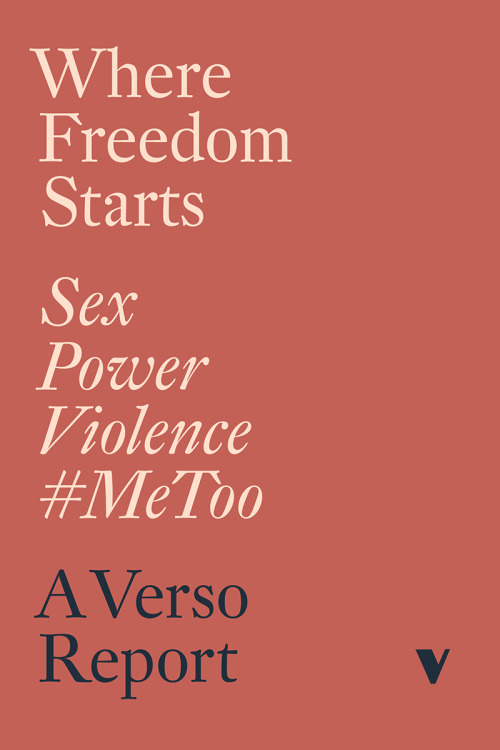
Where Freedom Starts (an anthology of essays on #MeToo)
This is an excellent collection of essays on #MeToo that captures the spectrum of feminist responses to the nascent movement. It includes black feminist critiques of carceral feminism, a discussion of black and Latinx vulnerability to sexual violence in the sphere of domestic labor, queer critiques of moral sex panics, feminist analyses of social reproduction, analyses of how undocumented women are hyper-vulnerable to sexual assault in the workplace (and at risk of deportation if they report sexual abuse), and more. I appreciate that many of these essays attempt to grapple with the emotionally and politically messy aspects of sexual violence–How do we determine the category or degree of the harm done? What you do when you feel ambivalence toward your rapist and internalize blame? How is victimhood constructed? I plan to return to these topics and questions in an essay I hope to write in May.
**This ebook is free from Verso.** Get it here.
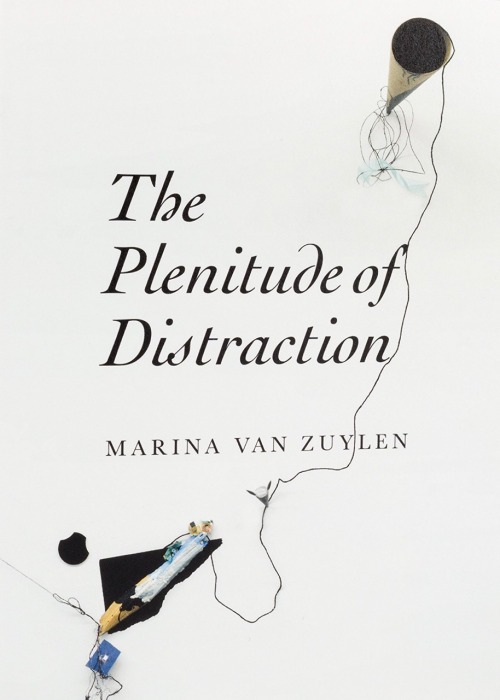
Marina Van Zuylen - The Plentitude of Distraction
If I ever teach my Lost Girls class on the poetics of wandering, I would definitely include this book!! So, so good. Yes, the poet needs to give herself over to her reveries. To luxuriate in the waywardness of experience–the soul cut loose.
Notes: Darwin’s great regret: “Up to the age of thirty, or beyond it, poetry of many kinds … gave me great pleasure, and even as a schoolboy I took intense delight in Shakespeare, especially in the historical plays. I have also said that formerly pictures gave me considerable, and music very great delight. But now for many years I cannot endure to read a line of poetry: I have tried lately to read Shakespeare, and found it so intolerably dull that it nauseated me. I have also almost lost my taste for pictures or music…. My mind seems to have become a kind of machine for grinding general laws out of large collections of facts, but why this should have caused the atrophy of that part of the brain alone, on which the higher tastes depend, I cannot conceive…. If I had to live my life again, I would have made a rule to read some poetry and listen to some music at least once every week; for perhaps the parts of my brain now atrophied would thus have been kept active through use. The loss of these tastes is a loss of happiness, and may possibly be injurious to the intellect, and more probably to the moral character, by enfeebling the emotional part of our nature.”
Discussed this Darwin passage with my analyst for some time. I don’t want to become a work machine! Give me “delicious idleness”!
“stop measuring your days by what you can report to your boss or to your conscience”
waywardness: “reveries unfasten him from his constructed social persona, eventually converting dispersal into a gathering of self-hood”
Blaise Pascal, Pensées: “The only thing that consoles us for our miseries is diversion. And yet it is the greatest of our miseries. For it is that above all which prevents us thinking about ourselves and leads is imperceptibly to destruction. But for that we should be bored, and boredom would drive us to seek some more solid means of escape, but diversion passes our time and brings us imperceptibly to our death.”
“the pure pleasure of a contemplative experience”
“It is not too late to side with some of the great propagandists of wasted time, with the practitioners of reverie, and cultivate the pleasures and pains of mental mayhem.”

Marx - Capital Vol 1
It’s always a good time to re-read Marx. In December I started a Capital reading group with my comrades LaKeyma and Joohyun. Marx is best read with your women of color crew!
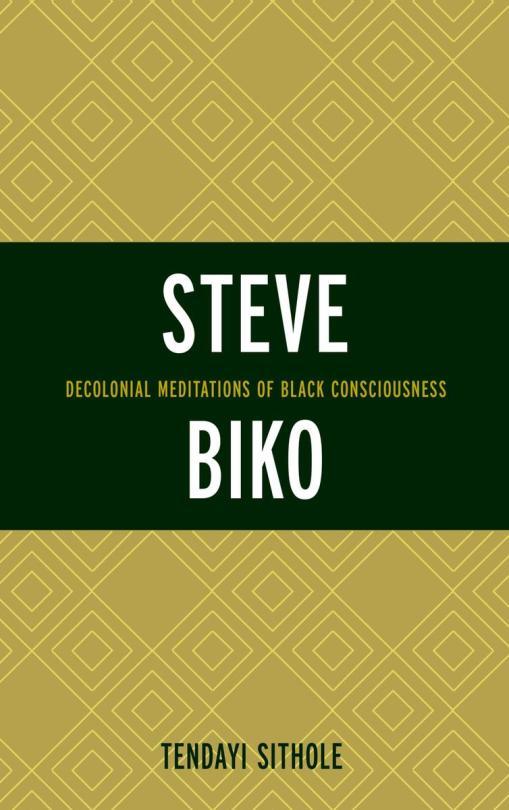
Sithole - Steve Biko: Decolonial Meditations of Black Consciousness
Did an event with the incredible Tendayi Sithole at NYU (moderated by Fred Moten and Wendy Lotterman), so I wanted to read Tendayi’s work on Biko before the event. Many parts of the book draw on Afropessimism to analyze Biko’s liberatory political philosophy. We had a long discussion (privately and during the panel) about Afropessimism’s reception in South Africa (”it’s given us a language to understand our predicament,” says Tendayi). Such good work, and such a wonderful person and poet too!! During the reading Fred said Tendayi and I “became a band.”

McGuckian - The Flower Master
Re-read this at the Deshaies botanical gardens in Guadalupe. Unfuckwithable. McGuckian is one of my favorite poets of all time. Also read the parts about McGuckian in Northern Irish Poetry and the Russian Turn. Had no idea McGuckian draws so heavily from Russian literature, and that she feels there is a natural kinship between Russians and the Irish due to their historical predicaments…
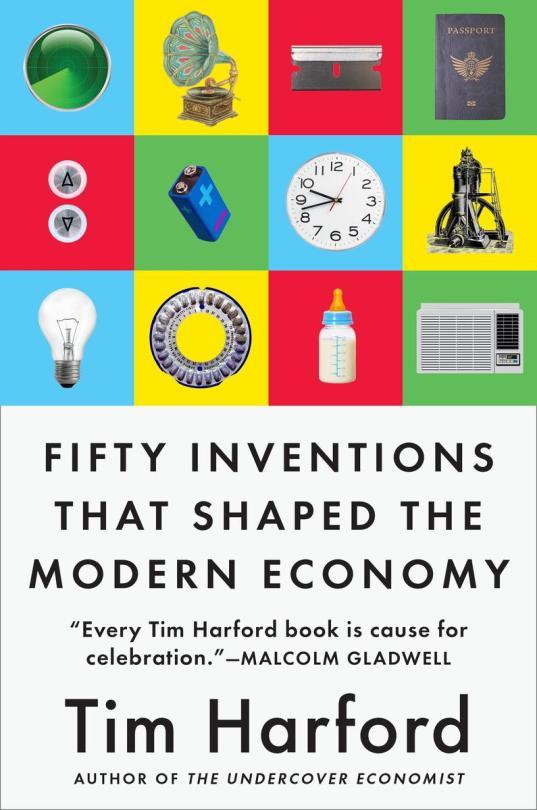
Harford - Fifty Inventions that Shaped the Modern Economy
Pop economic/business and tech history. Replete with compelling stories and fun facts about underappreciated inventions. The chapters I was most interested in were the ones about inventions that fundamentally transformed gendered labor (TV dinners, infant formula, the birth control pill). After a while this books started to annoy me because the novelty wore off and I can only handle so much praise of the so-called wonders of capitalism.
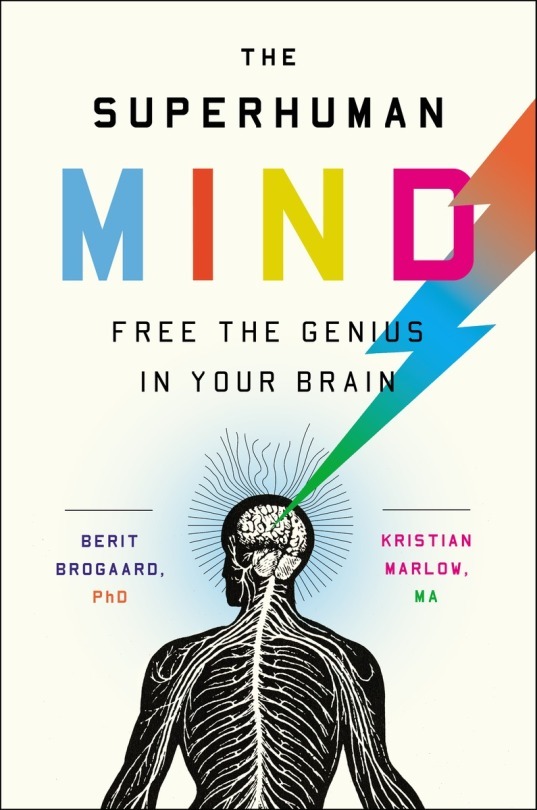
Brogaard and Marlow - The Superhuman Mind
I don’t think I’m any smarter after having read this book. It’s somewhere between pop science (in the style of Oliver Sacks) and self-improvement literature. The book tries to give you mental “hacks”–mnemonics and algorithmic mental shortcuts. Most of the the book describes case studies of people who have accidentally unlocked superhuman mental capacities as a result of a brain injury, stroke, etc…or they were just born neurologically atypical. Synesthetes have good memories. If you’ve ready any of the pop sci books on memory you already know these tricks… the Greeks have known about the Memory Room for a while too…
Still reading:
Moten’s Black and Blur
Anne Boyer’s A Handbook of Disappointed Fate
Doudna and Sternberg’s A Crack in Creation: Gene Editing and the Unthinkable Power to Control Evolution
Frank Stanford - The Battlefield Where the Moon Says I Love You
22 notes
·
View notes
Note
Hey! I just wanted to say that you have one of the most beautiful writing styles that I have ever come across. Whether it's dialogue or descriptions, your words just flow so naturally. There's something extremely ethereal and graceful in the way you write; the pacing, the choice of words. Just goddamn beautiful. And my favorite thing about you, is that you have these little repetitions of phrases. Sometimes I find that they can overdone, but with you... They fit perfectly in the narrative. (1/3)
“They build upon each other, and are just great. Then you also do this thing where you stretch a phrase or a sentence over several lines. Now this can be jarring and make the pacing a bit wonky, but again, with you, it's wonderful. They make an impact, but they fit just gorgeously. And the details, the thought that goes into your works are just fantastic. And your portrayals of Jack and Gabriel. The way you write them is so memorable and the way you show the dynamics of their relationship (2/3)”“... fuck even just thinking of them and the way you write them makes me tear up. And don't even get me started on your meta posts. I have no idea if I'm even making any sense right now, but the bottom line is goddamn do I love your writing. You're just so freaking awesome, I don't know what else to say. You keep doing you, friend. Hope you have a lovely day, and thank you so much for sharing your works and thoughts with us. Okay anon, I took some cold meds and ate food and drank water, I’m feeling a bit more up to answering this. but first offHOLY SHIT This is genuinely like, the most incredible thing anyone has ever said to me?? I am losing my goddamn mind because like, wow, mom, holy fuck, what did I do to deserve such an incredible compliment?? Dude, seriously, IDK if you’re someone I talk to on a semi-regular basis or what, but if you ever wanna come off anon and just message me or talk to me, I am HERE buddy. In a weird way, I’m kinda panicking because I’m thinking like, “Do I know this person?? Have I not told them how much I love them recently?? Because I love this person.”Seriously, dude, if you’re okay with my casual Cali attitude, I LOVE this. I am BEYOND THRILLED you like my stuff this much. Okay, so beyond the gushing - I dunno what it is with me and repetition. I was telling a friend not too long ago that, prior to starting my drafts of Old Habits, I haven’t written creative fiction in seven years. SEVEN YEARS. And I stopped because the awful, semi-bitter grad student who ran my Intro to Creative Writing class “felt that they should grade on a strict curve, so there was only going to be one A, two A-’s, like four B’s, etc” (don’t get me started on that class, fucking KILLED creative writing for me). Overwatch content is the first real creative writing stuff that I’ve worked on since 2010. But I honestly don’t know really where the repetition thing comes from? Maybe my sense of humor? If you read my stuff you know I tend to go overboard with puns and jokes sometimes, haha. But I just find something really fun in repeating things in new or different ways - usually I like to start with a phrase and then as I’m writing, my brain will continue to throw it at me in different moments. Por ejemplo...“Soldier: 76 is going to die, or my name isn’t Reaper,” Reaper grumbles snidely, his words laced with a dark, bitter, vivid smokiness. Sombra gives him a weird, confused look, asking slowly, “...But...your name...isn’t Reaper. That’s just your mercenary tag.”(later)I don’t fucking deserve this, he decides darkly, bitterly, with a vivid smokiness to his thoughts as Sombra wheeze-laughs beside him.(ending)“Looks like my job here is done,” Reaper states dramatically, flicking the tail of his overcoat behind him.“...But you didn’t do anything,” Soldier says darkly, his words entwined with bitterness, and just a hint of that vivid smokiness that used to make Reaper weak.I am fucking WEAK to him, Reaper thinks dryly, turning to leave.Maybe one day I’ll actually have the strength to end him.---I have a tendency to break up sentences into dramatic little phrases to emphasize pacing or significance. Usually, this is because this is how my internal voice is narrating the scene to me. It has a lot to do with how my brain tells myself jokes. Like. Using excessive punctuation. To really overemphasize. The. God. Damn. Point. Or sometimes it means no punctuation at all and it turns into this semi-weird semi-rambling stream of consciousness flow that just keeps going and jfc when will it ever end will this joke ever stop itself is it even funnyBasically how I write those little dialogue pieces that I set free into the wilds of my blog is essentially how I think when writing. My beta readers frequently get just strings of hypothetical dialogue pieces sent to them in the dead of night where I’m like, “THOUGHT OF A NEW INTERACTION, VALIDATE ME, I LOVE YOU, I NEED YOUR AFFECTION.” I am LEGIT ASTOUNDED that people like my stuff so much. Like, even those little dialogue posts get hundreds of notes and I’m like. How. I just wrote these because they made me laugh to myself. I just thought it would be funny to have Gabriel make a Bayonetta joke. I cannot fucking wait until we reach the “chat dialogue parts” of Old Habits because they are a WILD ride, my friend. They legit make me and my betareaders laugh so much. And if people like how I write banter and dialogue and the flow of a conversation, they’re gonna like these. I probably shouldn’t overhype but they’re some of the funniest stuff I’ve written and that includes the dumb Duck-Goose argument (which still gets me to cry all on my own). Wow this got really long, anon. Seriously, if you ever wanna engage with me on this stuff off anonymous, just hit me up. People who have messaged me can attest to the fact that I will just drop these random “hypothetical dialogue scenarios” into any given chat whenever the moment strikes. I did one with my friends earlier today about Jesse’s belt buckle. It led to a conversation about Lena’s crocs. I mean. That’s the Dumb Stuff™ you get when you chat with me.
#my writing#dumb stuff#references#ideas#segadores-y-soldados#asks#anon#hopefully this was a good answer to a good series of inbox messages#thank you#this made me feel a lot better#Anonymous
6 notes
·
View notes